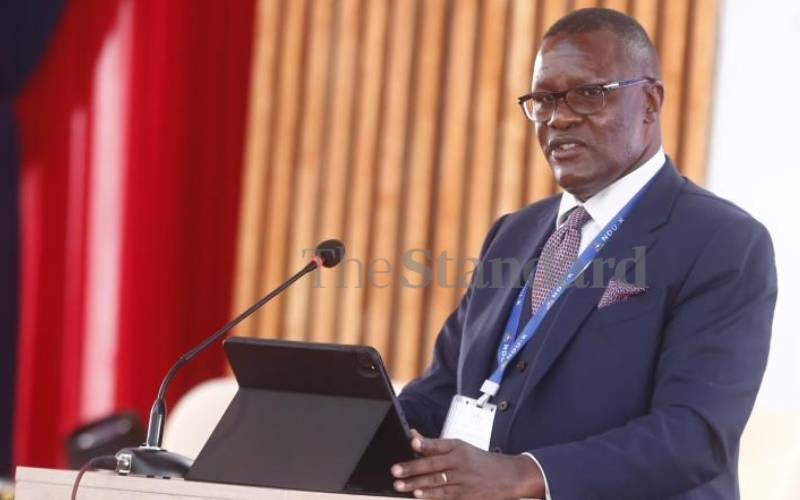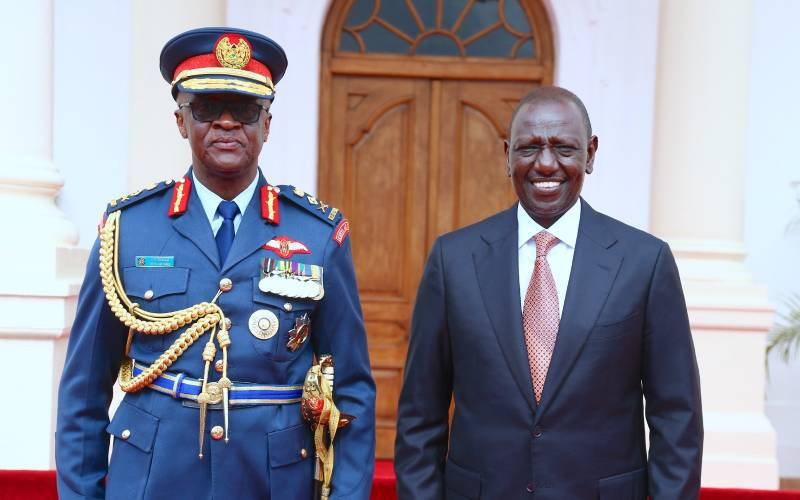A Nairobi management consultant, Eliud Owalo, has written to the International Community and appealed to them to impose political and economic sanctions on Kenya over the enactment of the security laws.
In his letter, Owalo (right) argues that the Kenya National Assembly unprocedurally and forcibly passed the repressive Security (Amendment) Bill, 2014 without subjecting it to full public scrutiny as required by the Constitution.
"I am appealing to you to come in as an agent of necessity by imposing political and economic sanctions against President Uhuru Kenyatta's government to occasion the forestalling of the new security laws," said Owalo, the former head of Raila Odinga's secretariat at the presidential elections last year.
He addressed the letter to the European Union, African Union, the United Nation Security Council, the World Bank, the International Monetary Fund, International Human Rights Agencies, United Nations High Commissioner for Human Rights and the International Press Institute.
Others are Amnesty International, East Africa Community Secretariat and Human Rights Watch.
"The bill was hurriedly tabled and passed, despite the fact that it was strongly opposed within and outside the House. And many legislators from the ruling Jubilee coalition admitted upon interview that they were coerced by the Executive to pass the bill without much ado," the letter partly reads.
Civil liberties
Owalo insisted that the Security laws affected 22 existing Statutes including the Evidence Act, the Criminal Procedure Act, Penal Code and the Civil Procedure Act.
"The new security law in its contents runs contrary to the Constitution for it contradicts the supreme law as far as press freedom, freedom of assembly and association, fair trial, freedom of movement, lawful search and arrest by police are concerned," he said.
He said the law ranks low in upholding human rights as stipulated under the Bill of Rights in the 2010 Constitution of Kenya and provides security forces with an opportunity to potentially infringe on every political, civil, media and human right in the name of fighting terrorism.
He said the law if effected will limit civil liberties as it does not have checks and balances or accountability mechanisms for pre-empting potential abuses by security personnel.
"This law presumes that the security forces will always work in the best interest of the people, without ill-will or favour contrary to what is known about their activities under such legal provisions," he said.
Owalo noted that the security law contravenes international treaties to which Kenya is a signatory. Such International laws include the International Covenant on Civil and Political Rights (1966), Universal Declaration on Human Rights (1948) and The International Press Freedom.
"It is noteworthy that the new law criminalises free expression by restricting what has to be published, imposing hefty fines on publications deemed criminal and requiring journalists to reveal their sources of information. The provisions are not seen to be in pursuit of a legitimate aim but parochial political agenda," he said.
Owalo said requiring journalists to assist the police in the identification of anonymous sources of their information amounts to killing press freedom and independent reporting.
Stay informed. Subscribe to our newsletter
 The Standard Group Plc is a
multi-media organization with investments in media platforms spanning newspaper
print operations, television, radio broadcasting, digital and online services. The
Standard Group is recognized as a leading multi-media house in Kenya with a key
influence in matters of national and international interest.
The Standard Group Plc is a
multi-media organization with investments in media platforms spanning newspaper
print operations, television, radio broadcasting, digital and online services. The
Standard Group is recognized as a leading multi-media house in Kenya with a key
influence in matters of national and international interest.
 The Standard Group Plc is a
multi-media organization with investments in media platforms spanning newspaper
print operations, television, radio broadcasting, digital and online services. The
Standard Group is recognized as a leading multi-media house in Kenya with a key
influence in matters of national and international interest.
The Standard Group Plc is a
multi-media organization with investments in media platforms spanning newspaper
print operations, television, radio broadcasting, digital and online services. The
Standard Group is recognized as a leading multi-media house in Kenya with a key
influence in matters of national and international interest.








